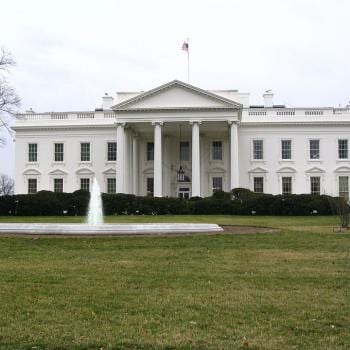In Roe v. Wade, the Supreme Court held that women had a fundamental right to procure an abortion. So long as the decision remains the law of the land, any attempt to significantly restrict legal access to abortion will be futile. For this reason, most of the pro-life movement has long seen overturning Roe as one of the chief goals in the fight against abortion.
Recently, however, several of my co-contributors at Vox Nova have taken issue with this assumption. Morning’s Minion, for example, put the matter thusly:
Some claim that the source of the “right” [to an abortion] is a certain Supreme Court decision, and this decision should be overturned. Game over. But not so. The largest states, states that account for the majority of abortions, would retain the legal framework intact— this, combined with ease of travel, makes me think that abortion rates would not change very much upon reversal.
To the extent that bans against abortion would be ineffective if limited to certain states, one obvious solution would be to press for a national abortion ban. Such a ban would be unlikely to pass, of course. But I don’t see that such a ban would be any less likely to pass than, say, a national handgun ban, which Morning’s Minion favors as a means of addressing the interstate problem that he finds so vexing in the abortion context. One could also favor a more limited law, preventing women from crossing state lines to avoid a home state abortion law. A version of such a law (limited to minors) was making its way through Congress before the Democrats took over, and the chances that such a law could pass in a post-Roe world are at least as high as any comparable ban on handguns.
Suppose though, that we stick with the scenario posed by Morning’s Minion, where abortion remains legal in some states but not in others, and no legal restriction on travel is in place. Would the abortion rate be lower in such a case than it is under Roe? I would say yes, for three reasons.
First, while some women in restrictive states would no doubt go to less restrictive states to obtain abortions, the evidence suggests that many would not. For example, while some women in Ireland (which bans abortion) do obtain abortions in England (where abortion is less restricted), the abortion rate for Irish women is less than half of what it is for English women. The truth is that travel itself is expensive, and women will be less likely to procure abortions if they have to go from Birmingham to Baltimore to get an abortion than if they merely have to go down the street.
Second, while it’s true that many states in a post-Roe world would not ban abortion outright, most states (including stereotypically liberal ones), would be likely to pass more restrictions on abortion than is possible under Roe. The abortion rates in Western Europe, for example, tend to be lower than in the United States. Some have cited this as proof that laws against abortion are ineffective. Yet what such an argument overlooks is that most Western European nations place restrictions on the availability of abortion that would be declared unconstitutional if attempted in the United States (for a full treatment of this subject, I would recommend the book Abortion and Divorce in Western Law, by Harvard law Professor and current ambassador to the Holy See, Mary Ann Glendon).
Finally, there is the effect that overturning Roe would have on public attitudes toward abortion. People will sometimes try to pit law and culture against each other when in comes to abortion, saying that laws against abortion will be ineffective unless and until cultural views about abortion change. What this overlooks, however, is the profound way in which law can shape a society’s cultural and moral views. In her book Real Choices, Frederica Matthews-Green tells the story of a women who was pressured by her boyfriend into having an abortion. At first she was reluctant, wasn’t abortion wrong? But her boyfriend finally convinced her to go through with it. The winning argument: “Oh, so you think you you better than the Supreme Court?” As someone who has gotten into lots of arguments about abortion, I’ve found that the “it’s legal, so what are we arguing about” line of reasoning is surprisingly and disturbingly common. Especially among those who lack strong religious convictions, the law is going to be a strong guide as to morality, and as such any attempt to change people’s moral convictions about abortion is going to have to involve changes in the law.
Aside from the “it’s legal” argument, probably the most common arguments against abortion involve the supposed parade of horribles that will occur once abortion is made illegal. Such arguments would be far less convincing, however, if abortion was already illegal in many states. People who favor legalized abortion generally see it not as an unmitigated good, but as a necessary evil. To the extent that the experience of states with restrictive abortion laws can show abortion to be an unnecessary evil, therefore, people are liable to be more receptive to the pro-life cause.
None of this can happen, however, so long as Roe remains “settled law.” So while the fight against abortion must have many fronts (to return again to martial metaphors), the battle to overturn Roe has to be given a central place in any overall anti-abortion strategy.











